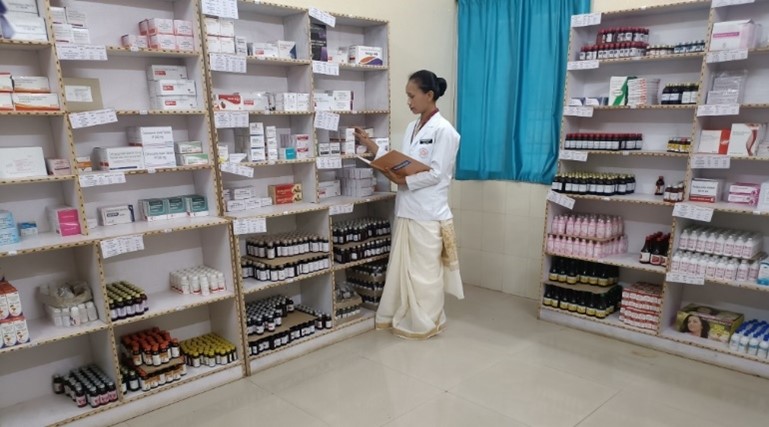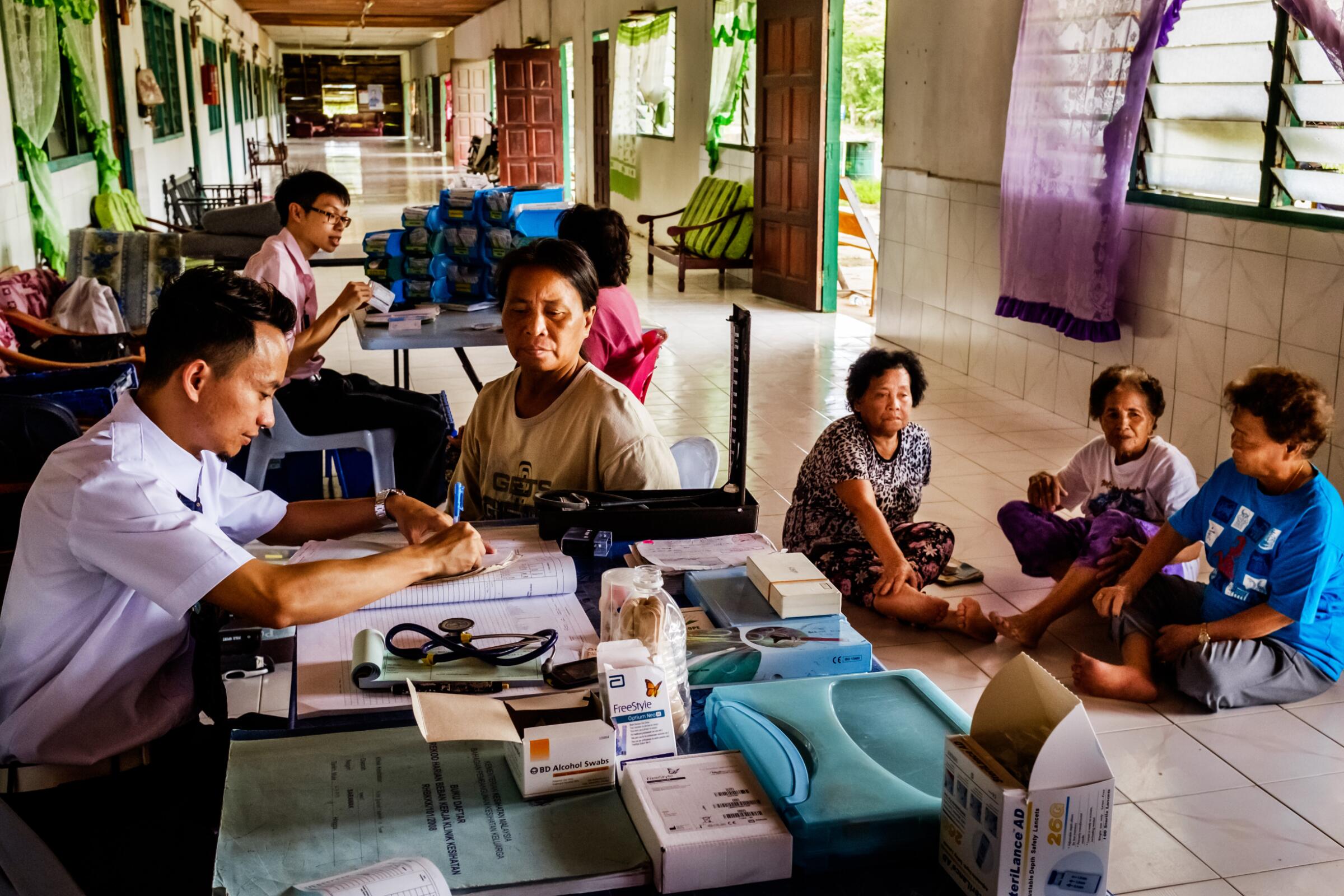
INVESTMENT ROUND: IMPACT STORY
Cameroon to reduce financial hardship for people needing health care
WHO’s support leads to informed decision-making

Mrs Joelle Bouba, Director of the Department of Financial Resources and Property, from the Ministry of Health discusses 2018-2019 health accounts findings at a key meeting in Yaoundé, Cameroon on 29 March 2023.
Funding
secured from key partners
Data collection
country tool developed
Training
established for National Health Accounts
In Cameroon, outdated health accounts impeded informed decision-making and policy development, and high out-of-pocket costs indicated a need for more equitable healthcare financing.
Recognizing the urgency, WHO intervened with a comprehensive support strategy, providing technical assistance to strengthen Cameroon's economic monitoring capacity.
WHO supported the Ministry of Public Health to reactivate Cameroon’s health accounts.
The updated Health Accounts enable the production, analysis, and use of health expenditure data to improve access in Cameroon to quality, essential health services.
The update to its Health Accounts for 2018-2019, was Cameroon’s first update since 2011.
WHO strongly advised using data to update the national health financing strategy and to inform critical decisions, such as the implementation of National Health Insurance. Efforts are under way to institutionalise this process in partnership with the National Institute of Statistics.
WHO provided technical support during the National Health Accounts production process, secured funding with partners for the initiative, established and trained a National Health Accounts focal point and multisectoral team.
As a result of collective efforts, Cameroon has a detailed record of primary expenditure channels and the entities responsible for them.
WHO also offered expertise in formulating the data collection tool, overseeing data collection, and validating the final report. It presented the report to key policy makers, advocating its use to revise the national health financing strategy.
“With the results of the health accounts, we are more aware of the efforts that need to be made to move towards universal health coverage.” explained Dr Désiré Mintop, Coordinator of the National Technical Committee on Universal Health Coverage.
Return on investment
/invest-visual-provide-health.png?sfvrsn=67b0de9_3)
A fully funded WHO will enable the Organization to "provide health" with people accessing health services without financial hardship to 5 billion people by 2028.
Strengthening the production, analysis, and use of data to inform health financing policy in Cameroon is an example of WHO strengthening health financing, contributing to WHO's Fourteenth General Programme of Work (GPW 14), strategic objective 3.2.
Funding the future
WHO’s support to Cameroon to strengthen data to inform health financing policy wouldn’t have been possible without funding.
To continue to support initiatives like this, WHO needs sustainable financing, that is, predictable, flexible and resilient. This will allow WHO to have the greatest impact where it is needed most. Please support the WHO Investment Round.
/invest-visual-investing.png?sfvrsn=dbf748b9_20)
Related case studies


